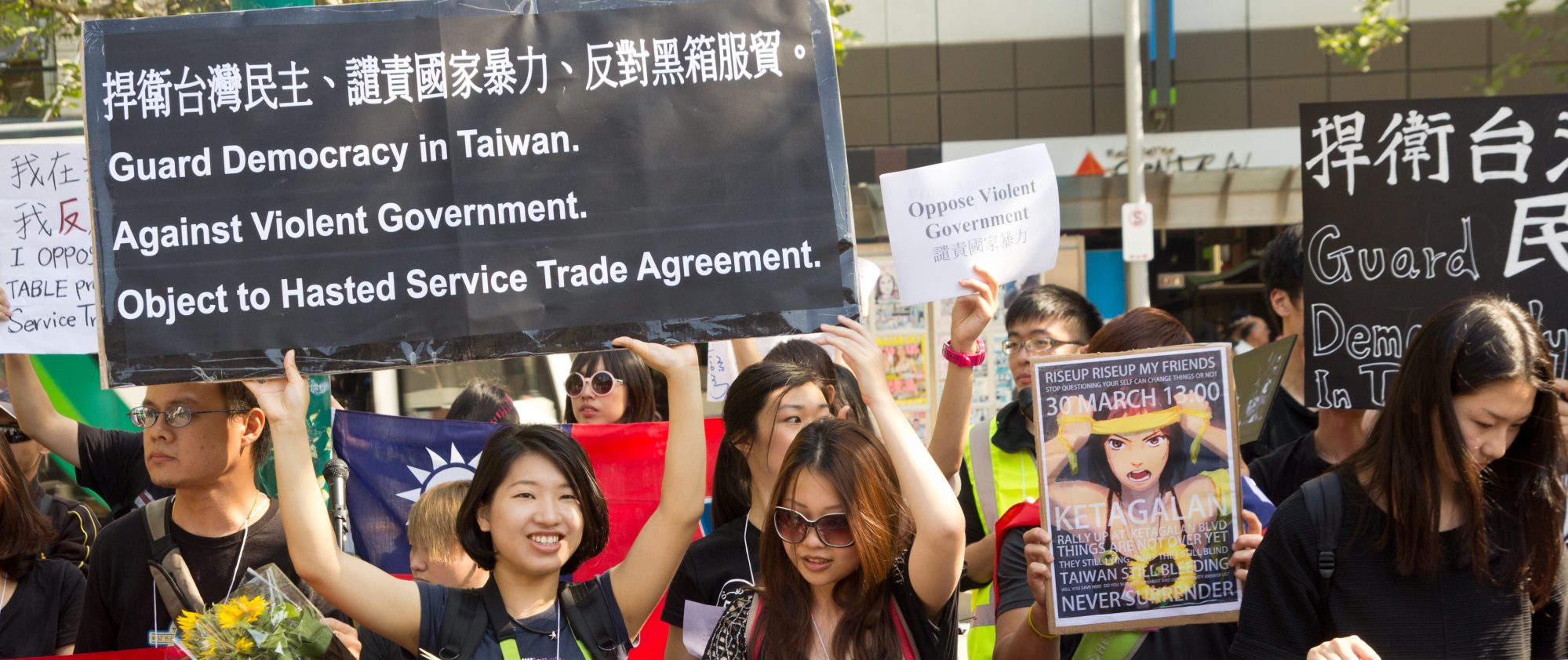
Tsai Ing-wen (蔡英文) spoke to a group of foreign residents in Taipei yesterday morning. She first spent some time outlining her vision for Taiwan before taking questions from the floor. Tsai is currently on leave from her position as chair of the Democratic Progressive Party (DPP) as she competes in the party’s primary for the presidential nomination. The primary will be decided by opinion polls conducted in the next few days with the announcement of the result expected on 4 May.
In outlining her vision for Taiwan, Tsai focused mainly on relations with China and economic policy. She had some interesting ideas about Taiwan’s future economic development.
On the issue of jobs Tsai said, “We don’t have enough jobs and enough good jobs. Despite the fact you may be able to find a job, you may not be able to find a job with good pay. So the quality of jobs is important too.” Tsai then discussed how this was related to the structure of the economy. Since the 1990s as Taiwanese businesses and capital moved to China the restructuring of the economy was delayed.
This led to Tsai mentioning the effect of large numbers of Chinese tourists coming to Taiwan. “With the outward movement of industrial production to China we are exporting higher pay, better jobs to China. With the inflow of Chinese tourists we are actually importing lower pay service jobs,” Tsai said.
Tsai presented some of her ideas for creating better jobs in Taiwan. These revolved around promoting R&D industries and locating these in rural areas. She also mentioned encouraging artists to move to rural areas. Tsai also mentioned the importance of agriculture. She said Taiwan needs more professional farmers and that people from the cities need to move to the country to get involved in agriculture. These ideas are laudable but I would like to see some more concrete details of the policies.
After Tsai had talked about her vision for Taiwan there was a question and answer session. Letters from Taiwan has written about his question to Tsai on how she would deal with Beijing’s potential hostility and aggression towards the DPP.
During the question and answer session I asked Tsai, “If you are elected president will you impose a moratorium on the death penalty and will you take measures to permanently abolish the death penalty?”
Tsai replied, “The [abolition of the] death penalty is a global trend, but before you move in that direction you have to make sure your people are prepared. If your people are not prepared you’re creating more obstacles for yourself to move towards that direction.”
“How do you make them prepared for that? You have to give them this sense of security. That is you have a good social system that protects people. And secondly you have a good judicial system which makes right decisions in cases brought to them. And then when people feel comfortable you start to tell them what we need to do in order to move forward to that goal,” she said.
Her reply only focused on the issue of abolition and she didn’t mention whether she had any intention of implementing a moratorium on the death penalty if elected to the presidency. A moratorium is a first step and doesn’t require the legal changes necessary for abolition. Taiwan had a moratorium from December 2005 to April 2010.
Unfortunately it seems that in the present political environment politicians from both the DPP or the Chinese Nationalist Party (KMT) are unwilling to take a principled stand on the issue of the death penalty. However, it is only through politicians taking leadership on the issue that abolition will be achieved. I hope Tsai will be more willing to directly confront this issue if she gets elected.
In responding to another question Tsai made some more substantial comments about the importance of judicial reform. “To strengthen the protection of human rights we need to carry out a comprehensive judicial reform here. I was a law professor for a long time. I know this judicial system is not serving as the protector of justice or the protector for the disadvantaged people here. So the judicial system is the most important thing to make sure that your democracy is functioning properly and your human rights are protected,” she said.
The current controversy over appointments to the Grand Council of Justices, the gross miscarriage of justice in the Hsichih Trio case as it goes to another retrail and concerns about politicisation of the judiciary show that this is a vital issue. A professional and independent judiciary is vital for a healthy democracy. Ma Ying-jeou’s KMT government has repeatedly failed to deliver on its promises of judicial reform. Tsai Ing-wen and the DPP deserve a chance to see if they can do better.
*Video of the entire event can by viewed on YouTube. I have collected the six videos in a playlist.
